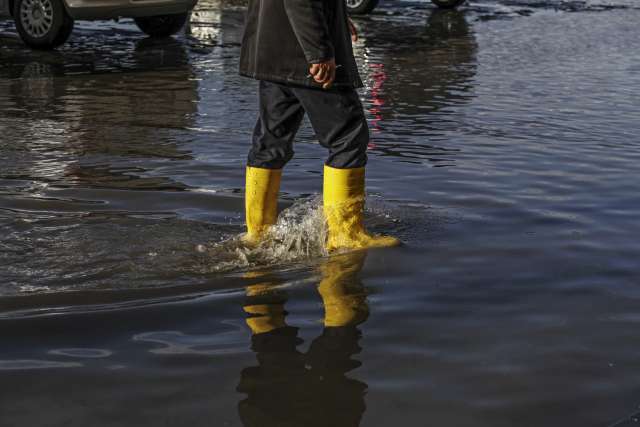When storms and abnormal amounts of rainfall cause flooding, your first worry may be damage to your car and home. But they aren’t the only concerns you should have. Potential dangers to your health are often lurking in standing floodwater and the mold it leaves behind.
The good news is that you can protect yourself and your family from unnecessary health risks. You just need to know what to expect and what precautions to take.
What makes floodwater dangerous?
Rainwater itself is not harmful. But continuous and heavy rainfall can cause rivers to overflow and may quickly overwhelm sewer and drainage systems. Raw sewage and storm runoff from nearby homes and businesses can contaminate water with:
- Animal and human waste, which often contain harmful bacteria
- Chemicals, oil and gasoline from neighborhood cars and garages
- Hazardous waste from nearby industrial buildings
- Household chemicals and cleaners commonly flushed down the drain
Standing water, even from rainfall, is also a breeding ground for bacteria and mold. Once these toxins become airborne, you can easily inhale them.
Floodwater health risks
Infectious diseases rarely follow flooding in the United States. But contaminated flood water and the resulting mold can still cause health issues, including:
- Allergy and asthma: Standing water, damp buildings and soggy items can promote mold and bacteria growth. These toxins can trigger an allergic reaction and cause asthma to develop or flare up.
- Gastrointestinal illness: Swallowing contaminated floodwater can cause digestive issues such as stomach pain, diarrhea and vomiting.
- Infection: Small cuts and wounds can develop secondary infections when exposed to bacteria in contaminated water.
- Skin rash: Direct contact with contaminated floodwater can irritate the skin.
- Small wounds and injuries: Debris in floodwater can puncture the skin, putting you at risk for infection and tetanus, a severe nervous system disease. Murky water can also cause unsafe footing, leading to injuries resulting from missteps and falls.
Some people are more vulnerable to illness from floodwater. Older people and those with chronic diseases or compromised immune systems should avoid all floodwater. It’s also best to keep children and pets out of floodwater too — pets’ paws are hard to clean, and children tend to put their hands in their mouths.
Staying safe near floodwater
It’s wise always to assume that floodwaters are contaminated with sewage and avoid them whenever possible. If you must spend time near or in contact with floodwater, take the following precautions:
- Cover open wounds with a waterproof bandage to reduce the risk of infection
- Discard food that has been in contact with floodwater
- Use water from a safe source for drinking and cooking
- Wash out wounds immediately and apply antibacterial ointment after exposing them to floodwater
- Wash your hands often with soap and clean water
Protect yourself from mold by using an N95 respirator and wearing gloves, boots, and long pants and shirts when cleaning up flood-related damage. Wear goggles that don’t have vent holes to avoid exposing your eyes to mold.
When to seek medical care
Have a medical professional evaluate any wound resulting from or directly exposed to standing floodwater. They’ll look at your records to determine if you need a tetanus immunization or booster.
If you’ve had contact with floodwater or mold, seek medical attention if you develop any of the following symptoms:
- Confusion or disorientation
- Digestive issues, including nausea or diarrhea
- Fever
- New or increasing pain
- Quickened heart rate
- Respiratory illness, such as trouble breathing, coughing or shortness of breath
- Wounds that become red, swollen or oozing



